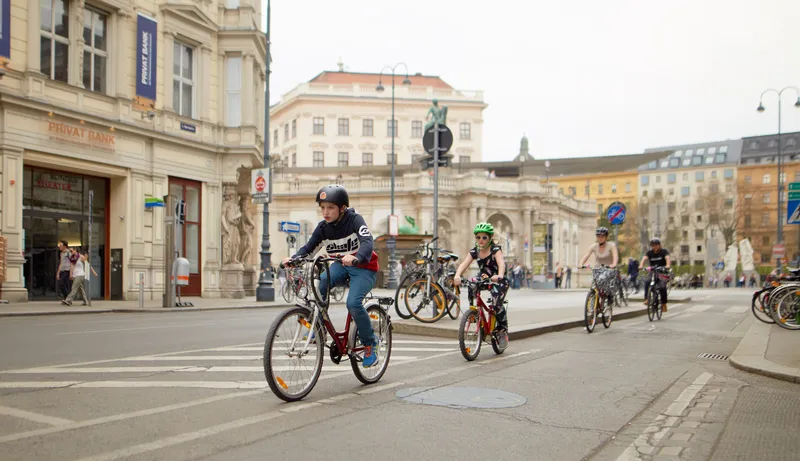The UK’s Freight Transport Association (FTA) and FIA Europe have welcomed the European Commission’s package of measures, presented this week, to accelerate the transition to low carbon emissions in all sectors of the economy in Europe.
The EU says the measures set clear and fair guiding principles to Member States to prepare for the future and keep Europe competitive.
Responding to the announcement, the FTA said that the proposed measures are a step in the right direction to reducing freight carbon e
July 22, 2016
Read time: 3 mins
The UK’s 6983 Freight Transport Association (FTA) and FIA Europe have welcomed the European Commission’s package of measures, presented this week, to accelerate the transition to low carbon emissions in all sectors of the economy in Europe.
The EU says the measures set clear and fair guiding principles to Member States to prepare for the future and keep Europe competitive.
Responding to the announcement, the FTA said that the proposed measures are a step in the right direction to reducing freight carbon emissions. It welcomed elements of the communication and noted that the strategy does not focus on only one or two specific measures but lists a variety of measures, recognising that there is not just one solution to help decarbonise transport.
While the FIA in Europe welcomed the proposals, saying the continued focus on car efficiency is important in the effort to achieve low carbon mobility, Jacob Bangsgaard, FIA Region I Director General said “at the same time it is also important to develop mobility solutions which seamlessly connect different modes of transport according to customers’ specific needs.”
In 2014, EU leaders agreed to reduce greenhouse gas emissions by at least 40 per cent by 2030 compared to 1990 levels across all sectors of the economy. The latest proposals present binding greenhouse gas emission targets for Member States from 2021-2030 for the transport, buildings, agriculture, waste and land use and forestry sectors.
Under the Effort Sharing Regulation, the plans for the 28 EU member states put the onus on Sweden, Luxembourg, Finland, Denmark, Germany, Britain, France and Austria as the bloc seeks to meet its commitment to cut emissions by 40 per cent over 1990 levels.
Under the targets, which are based on economic growth, Sweden and Luxembourg must cut emissions by 40 per cent over 2005 levels, while Finland and Denmark must cut emissions by 39 per cent and Germany by 38 per cent. Britain and France are asked to cut emissions by 37 per cent while Netherlands and Austria should cut by 36 per cent.
Pauline Bastidon FTA head of European Policy said, “There is no one size fits all approach to reducing freight carbon emissions – a whole package of operational and technical measures are required for the sector to make a contribution to climate change reduction targets. An effective framework for low emission alternative energy and an adequate roll-out of infrastructure for alternative fuels are key for us and can go a long way in helping the logistics sector reduce its carbon footprint.”
The EU says the measures set clear and fair guiding principles to Member States to prepare for the future and keep Europe competitive.
Responding to the announcement, the FTA said that the proposed measures are a step in the right direction to reducing freight carbon emissions. It welcomed elements of the communication and noted that the strategy does not focus on only one or two specific measures but lists a variety of measures, recognising that there is not just one solution to help decarbonise transport.
While the FIA in Europe welcomed the proposals, saying the continued focus on car efficiency is important in the effort to achieve low carbon mobility, Jacob Bangsgaard, FIA Region I Director General said “at the same time it is also important to develop mobility solutions which seamlessly connect different modes of transport according to customers’ specific needs.”
In 2014, EU leaders agreed to reduce greenhouse gas emissions by at least 40 per cent by 2030 compared to 1990 levels across all sectors of the economy. The latest proposals present binding greenhouse gas emission targets for Member States from 2021-2030 for the transport, buildings, agriculture, waste and land use and forestry sectors.
Under the Effort Sharing Regulation, the plans for the 28 EU member states put the onus on Sweden, Luxembourg, Finland, Denmark, Germany, Britain, France and Austria as the bloc seeks to meet its commitment to cut emissions by 40 per cent over 1990 levels.
Under the targets, which are based on economic growth, Sweden and Luxembourg must cut emissions by 40 per cent over 2005 levels, while Finland and Denmark must cut emissions by 39 per cent and Germany by 38 per cent. Britain and France are asked to cut emissions by 37 per cent while Netherlands and Austria should cut by 36 per cent.
Pauline Bastidon FTA head of European Policy said, “There is no one size fits all approach to reducing freight carbon emissions – a whole package of operational and technical measures are required for the sector to make a contribution to climate change reduction targets. An effective framework for low emission alternative energy and an adequate roll-out of infrastructure for alternative fuels are key for us and can go a long way in helping the logistics sector reduce its carbon footprint.”







